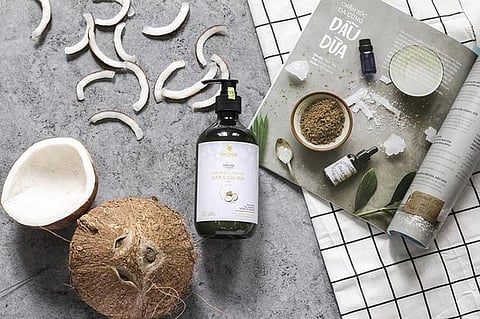India has utilized a variety of plants and their extracts as cleansers since earlier civilizations. The word "shampoo" was coined in 1762 and is taken from the Hindi term "champu," which itself was taken from the Sanskrit word "chapyathi," meaning "to massage." The shampoo has been used in India since the late fifteenth century, when a combination of boiling gooseberry, hibiscus, soapberries, acacia, as well as many other hair-friendly plants was prepared and applied to the scalp to clean and healthify the hair.


